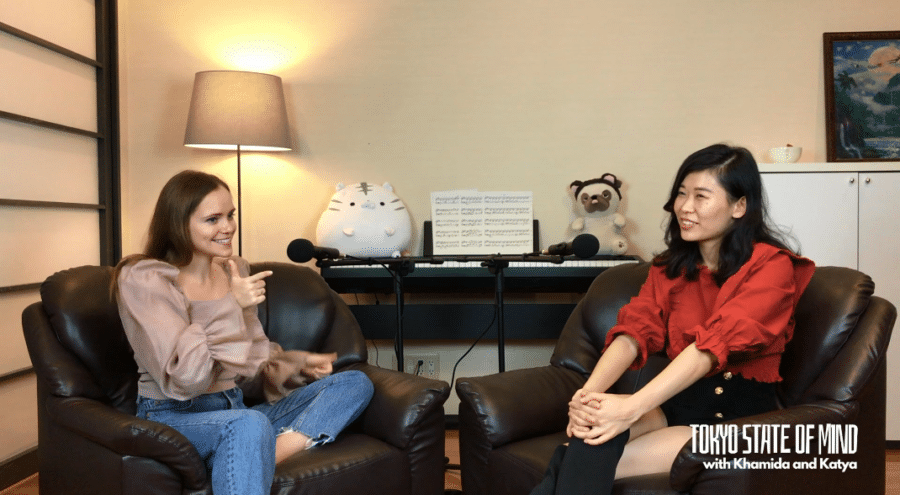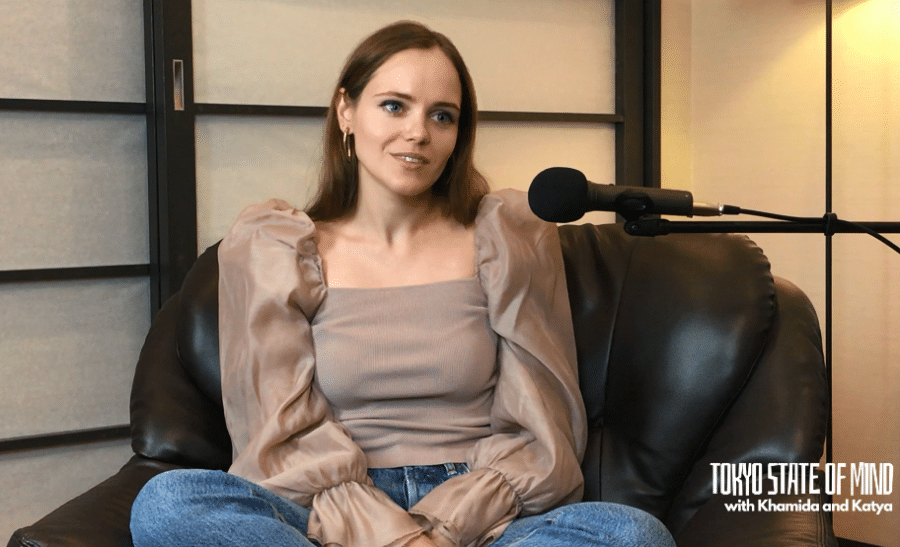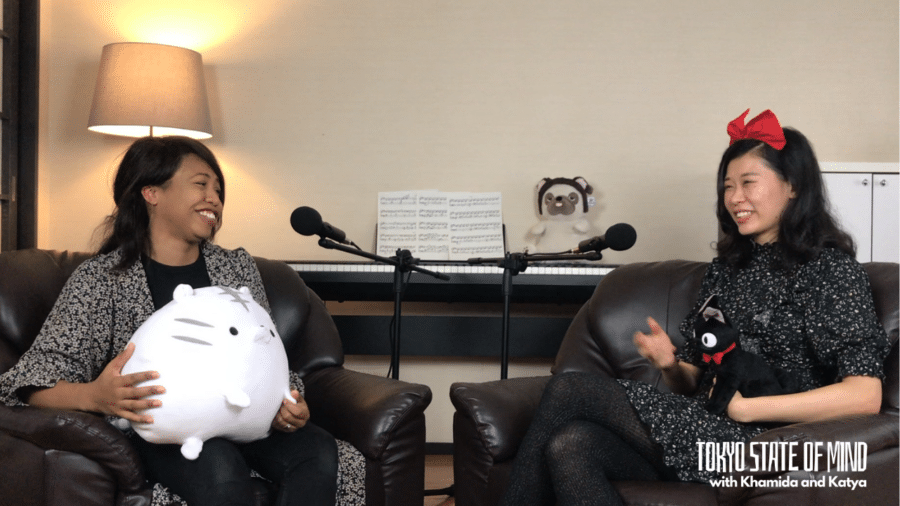One of MSA’s goals is to highlight and publicize the achievements of current scholars and alumni. By doing so we wish to show what recipients of the MEXT scholarship, both current and former, are capable of – as well as give them a boost to their efforts.
Today we are featuring the two current scholars behind Tokyo State of Mind, Katya Ulanova and Khamida Malianchinova. Tokyo State of Mind is a Youtube podcast created by the both of them out of their JASSO dorm. Their goal is to highlight some inspiring stories that can support and empower their viewers as they seek a way to live in the largest metropolitan area in the world.

Hello to the both of you! Firstly, could you give us a brief background of yourselves like when you came and what you are currently studying?
Katya – Both of us came to Japan under the MEXT research scholarship in April 2019 at the same time actually! I myself am from Russia and am currently doing my 2nd year of my Masters at the University of Tokyo, studying Petroleum Engineering. I’m expecting to graduate in August 2021.
Khamida – I’m from Kyrgyzstan and am studying Media and Communications. I’ll be finishing my Research term next semester (March 2021) and after that … who knows! I will be applying for a Masters but ideally I want to find a way to make Tokyo State of Mind a full time thing.
I see! What made the both of you come to Japan and how did you hear about the MEXT Scholarship anyway?
Katya – For me I first visited Japan 4 years ago. The people, culture and living standards really attracted me and motivated me to find a way here. I actually do plan to stay here on a permanent basis.
As for how I knew about MEXT, I actually knew a former scholar who received the scholarship around 13 years ago. She was the person who informed me about this opportunity
Khamida – (embarrassed smile) actually it was Anime and Japanese music which started my interest. And because I was learning Japanese I heard about the scholarship through the information shared between fellow Japanese learners.
I actually did apply for the MEXT Undergraduate scholarship but didn’t receive it. Second time I managed to get it for the research scholarship though thankfully.
Side note: Tokyo State of Mind has interviewed Travis Senzaki who has spent 9 years working with scholarship applicants. If you are a prospective scholar you may find the video below insightful.
Quite different motivations but the both of you somehow found yourselves coming to Japan at the same time, in the same dormitory, and now doing the same project! Speaking of which, what made you start Tokyo State of Mind?
Katya – Honestly one part of the reason was that we really didn’t want to do a typical Japanese job after graduation. Instead we wanted to try creating something ourselves.
Khamida – And so when we were thinking about what to do – we looked at our own experiences and saw that when we first came around 18 months ago, we faced many confusing situations. Isolation, culture shock and many other issues.
Tokyo State of Mind was created out of our want to address these issues as well as to put our rebellious streak into something that could benefit everyone.
Interesting! How do you aim for the podcast to address these issues?
Khamida – I guess one thing is that many of us face similar issues or circumstances. Missing your family, being the only foreigner in your university laboratory, how “dry” (ドライ, translating to “cold”) sometimes Japanese communication can be etc.
Katya – I think that many of these stories are currently unspoken. But by someone putting these unspoken experiences into words we can tell everyone that it’s okay that you feel this way. That being vulnerable is fine. And that there is a way to overcome these obstacles and challenges.
Khamida – In this sense, Tokyo State of Mind aims to be two things, informative and supportive. Through having our guests talk frankly about their experiences we want to be a form of emotional support. In addition, through allowing our interviewees to share their experiences we can also provide information such as professional stories, mental health resources and plug other information gaps.

You’ve so far done 10 episodes but have there been any personal takeaways from your interviewees?
Katya – Actually part of my goal in each interview is to find something useful for myself in each story. So far the most impactful story for me would be with Mike Mocarski.
His story – about why Japan is the best place to do Photography was a message that I took to hear about how we should not be afraid of trying new things. He himself pivoted from a job in writing to photography purely out of interest.
A similar story was with Igor Voroshilov, CEO of LikePay, who started his own company while still a student and who told us that many startups fail because they give up too early – and to be not afraid of failure. (Note: Igor is also a former MEXT scholar).
Khamida – I mean the biggest takeaway for me was that I didn’t know how fun it would be! And discovering how many creative and collaborative people there are out there.
Katya has already mentioned a lot. I just wanted to add was that the biggest personal takeaway for us, seeing the comments that we get, is the satisfaction in knowing that what we create has value and that what we are doing is impactful for someone else.
How about your plans from now on? Where do you tend to take Tokyo State of Mind?
Khamida – We finished our first series in early October but are already working on our second. The second series of Tokyo State of Mind will start in late October.
We will be experimenting with different formats like dialogues between guest, different topics, possibly interviews in Japanese and collaborations with other bodies.
Katya – While not forgetting more professional stories we also want to move our stories in a more intimate direction too.

Sounds good! One last thing – please leave a message for any incoming scholars or people thinking about taking the dive to come to Japan
Katya – If you want to study in Japan, you have to understand how people behave. Don’t judge – you also have to learn how to see things from a different point of view.
And don’t give up – if you want to immerse yourself go straight in and explore. And don’t be shy just because people around you may seem to be shy or closed off to you. Hint: they’re actually not!
Khamida – Come! It’s a great place. My advise is really to take the initiative. Make errors, fail and be embarrassed – but quickly. Much less pain in the long run.
After all COVID-19 has shown us how fragile our circumstances can be, therefore really strike quickly and fail fast!
Tokyo State of Mind can be found on Youtube, where they post their podcasts. They can also be found on Facebook and Instagram where they can be followed so that you don’t miss updates.

